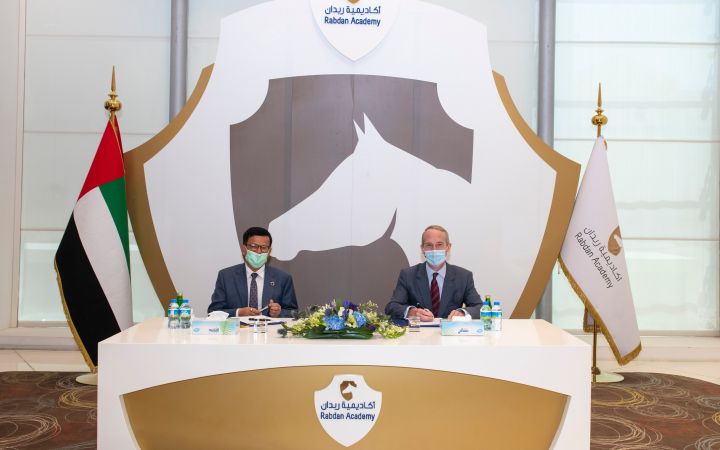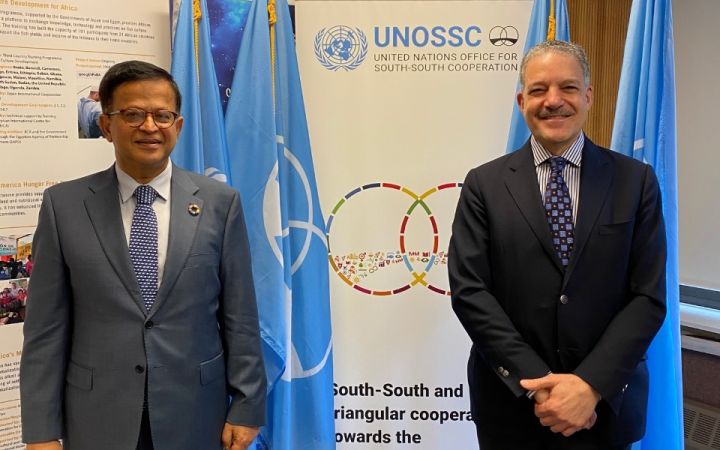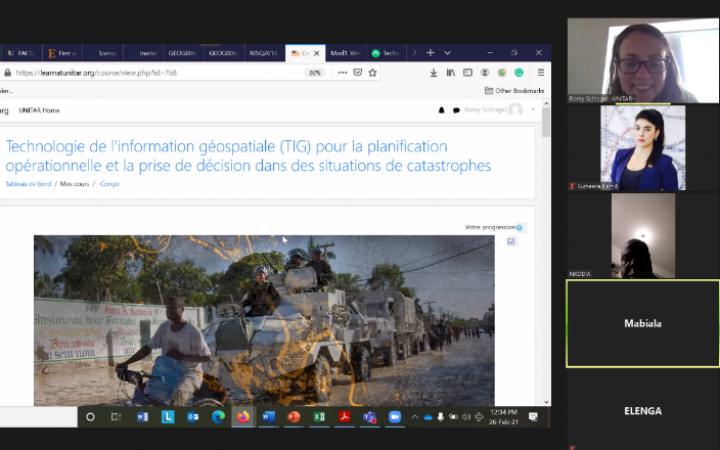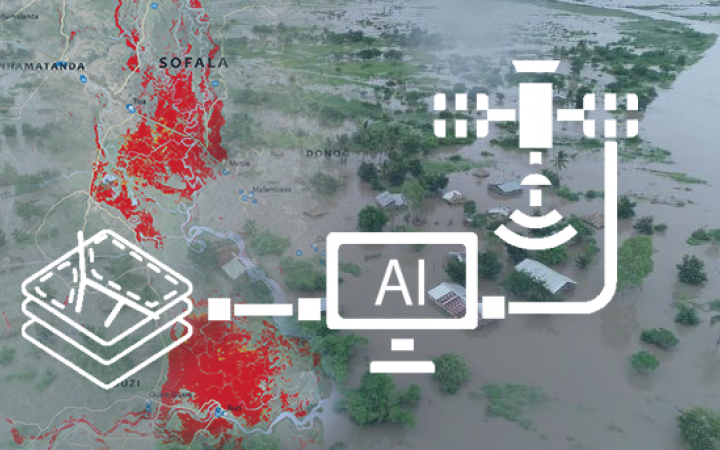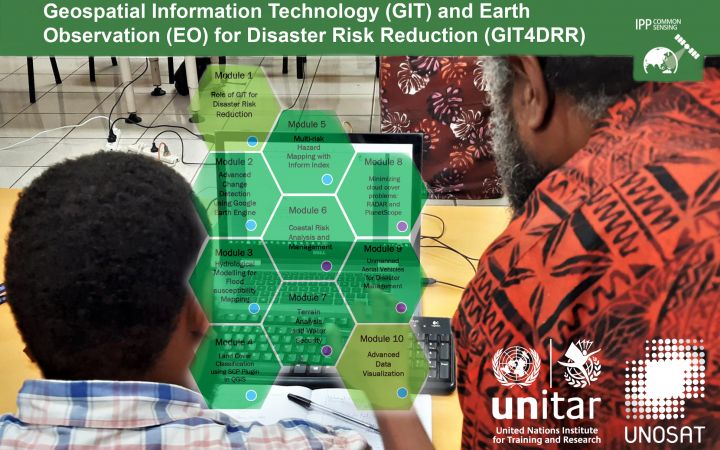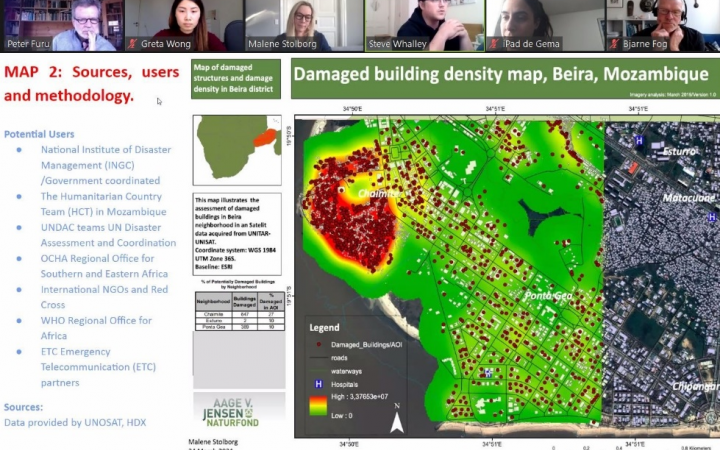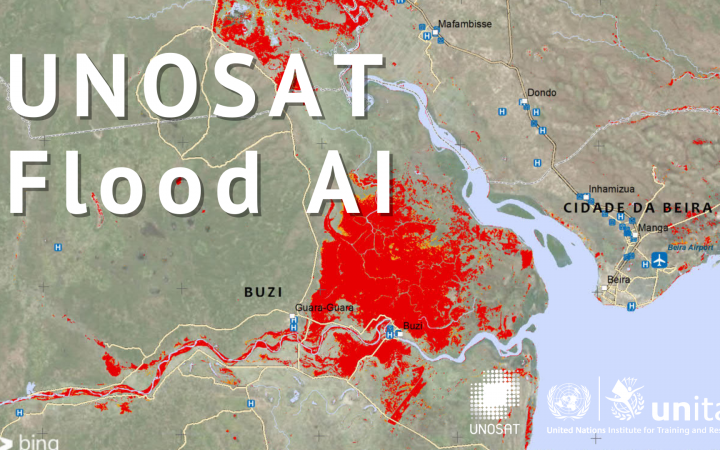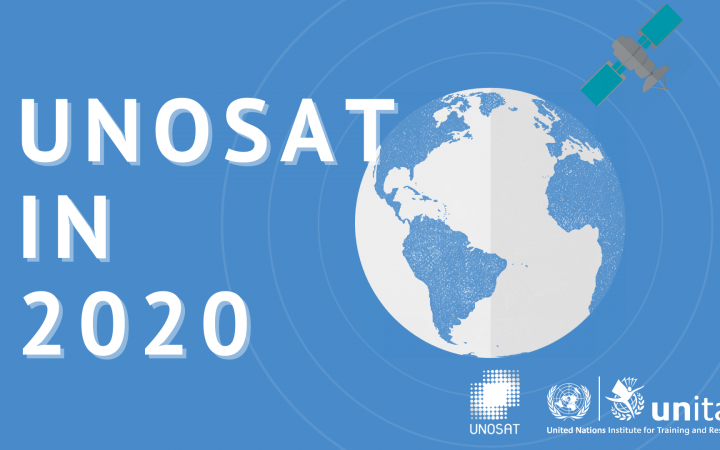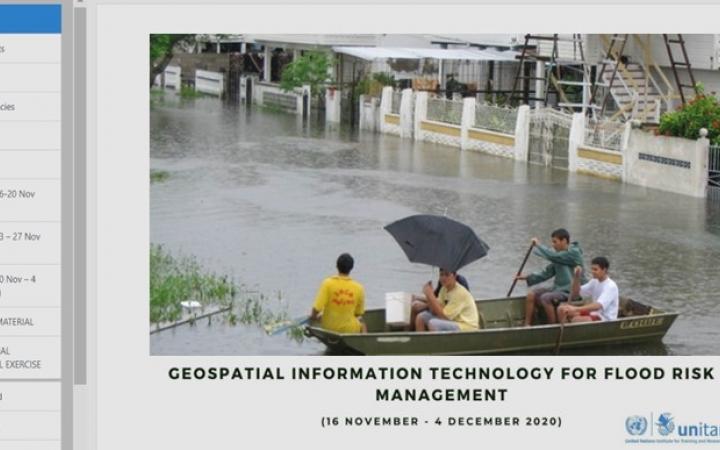Displaying 61 - 70 of 158
22 April 2021
21 April 2021, Abu Dhabi, UAE - The United Nations Institute for Training and Research (UNITAR) is delighted to announce the signing of a joint agreement between Rabdan Academy, UAE, and UNITAR. The MoU was signed at Rabdan Academy’s campus in Abu Dhabi by Mr. James Morse, President of Rabdan Academy, and Mr. Nikhil Seth, UN Assistant Secretary-General and Executive Director of UNITAR. Both partners stressed the importance of joint training and educational efforts to address the challenges facing the UAE and the wider international community.
21 April 2021
20 April 2021, New York, USA – Mr. Nikhil Seth, Executive Director of UNITAR, is visiting New York to discuss strategic matters with officials from the United Nations. During his first day, he had a meeting with Mr. Abdel Abdellatif, Director of the UN Office for South-South Cooperation. The two discussed the cooperation between both offices through the Operational Satellite Applications Programme (UNOSAT) focusing on the use of maps, reports, and data from satellite images to assess the impact of flooding as the most frequent type of disaster. This initiative is to better support and provide technical assistance to Least Developed Countries (LDCs) and Small Island Developing States (SIDS) with the cooperation of the Government of India, South Africa, and possibly China.
12 April 2021
12 avril 2021, Brazzaville, République du Congo – Du 25 février au 31 mars 2021, UNITAR-UNOSAT a livré une formation en ligne au bénéfice de la République du Congo. Cette formation, animée par des facilitateurs, avait pour but de transmettre aux participants les concepts et la terminologie de la technologie de l'information géospatiale (TIG) ainsi que des méthodologies géospatiales pour soutenir les opérations de réponse d'urgence et le processus de décision lors de catastrophes humanitaires.
9 April 2021
13 April 2021, Geneva, Switzerland - When a natural disaster hits, rapid responses are essential to assess the damage quickly and to direct humanitarian relief efforts where they are needed the most. Experts and data scientists from UNITAR-UNOSAT and UN Global Pulse applied Artificial Intelligence (AI) to satellite imagery to quickly map flooded areas and assess the damage that was caused in various operational settings. In this blog, we describe the approach and how we’re using it to inform decision-making on the ground.
8 April 2021
8 April 2021, Georgetown, Guyana & Geneva, Switzerland – Between 18 January and 02 February 2021 UNOSAT and CIMA in partnership with UNDP, Guyana delivered a 12-day technical course entitled “Operational Flood Forecasting System”. The course focused on the operational use of the hydrologic/hydraulic models and flood forecasting chain implemented at Hydrometeorological Service, Ministry of Agriculture, Guyana. Due to travel restrictions resulting from the COVID-19 pandemic, the training was delivered remotely in a moderated e-learning format.
6 April 2021
6 April 2021, Bangkok, Thailand - UNOSAT delivered an advanced training on the Operational Application of Geospatial Information Technology (GIT) for Disaster Risk Reduction (DRR) for Fiji, Vanuatu, and the Solomon Islands using blended learning formats to ensure maximum engagement of participants despite the challenges of the COVID-19 pandemic. This training was offered as part of the capacity development activities of the CommonSensing project that aims to improve climate resilience in the Pacific small island states.
1 April 2021
31 March 2021, Copenhagen, Denmark - UNITAR-UNOSAT and the University of Copenhagen co-organized and delivered a 3-week Masters level course entitled “Geo-information in disaster situations” from 8 to 26 March 2021. The beneficiaries were fourteen University of Copenhagen students registered in the Master of Disaster Management programme. Instruction during the first week focused on an introduction to remote sensing, data analysis, cartographic modelling and essential software applications and was delivered by the University of Copenhagen.
25 February 2021
25 February, Geneva Switzerland - The Artificial Intelligence (AI) algorithm developed by UNOSAT with the support of UN Global Pulse, the UN Secretary-General's innovation initiative, was used in the recent rapid mapping activation for seasonal floods in Mozambique.
10 February 2021
2020 was a year of both challenges and accomplishments for UNITAR-UNOSAT. Our mapping teams delivered 1,136 products and services based on over 300 analyses to partners in 59 countries. Throughout the year we also successfully designed and implemented several capacity development activities: UNITAR-UNOSAT delivered 16 learning-related events in 2020 to 471 beneficiaries consisting mostly of government officials, 6 of which were web-based and 10 of which took place face-to-face.
20 January 2021
20 January 2021, Geneva, Switzerland – UNOSAT delivered a four week e-learning moderated course under the framework “Strengthening Women’s Disaster Management Capacities in Guyana and Dominica”, a project funded by the Government of Japan and led by UNDP Guyana. The e-learning event is part of the capacity development activities planned under the second component of the “Development of Guyana’s National Flood Early Warning System (NFEWS)" initiative.


